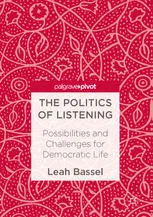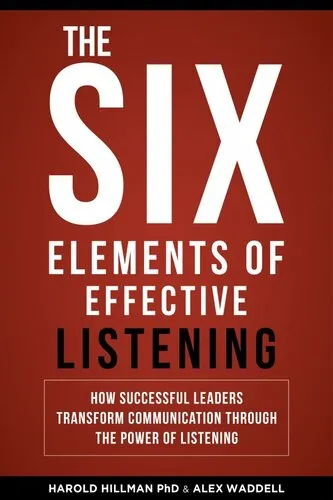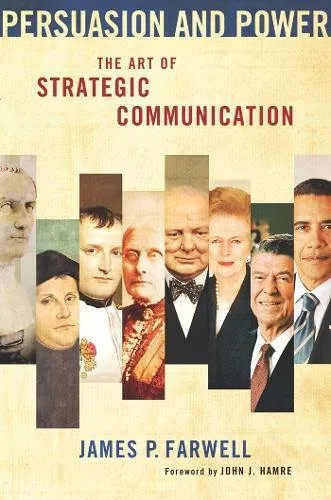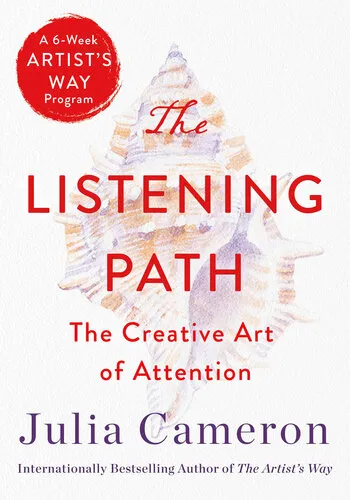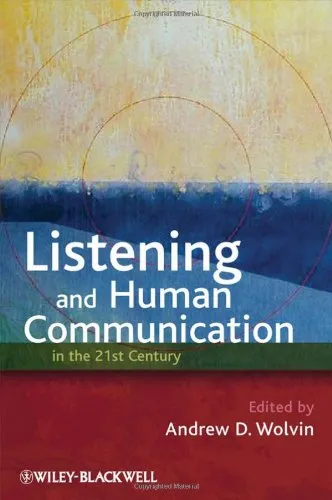The Politics of Listening: Possibilities and Challenges for Democratic Life
4.7
بر اساس نظر کاربران

شما میتونید سوالاتتون در باره کتاب رو از هوش مصنوعیش بعد از ورود بپرسید
هر دانلود یا پرسش از هوش مصنوعی 2 امتیاز لازم دارد، برای بدست آوردن امتیاز رایگان، به صفحه ی راهنمای امتیازات سر بزنید و یک سری کار ارزشمند انجام بدینکتاب های مرتبط:
معرفی کتاب
کتاب «The Politics of Listening: Possibilities and Challenges for Democratic Life» نوشته لیا باسل (Leah Bassel) به بررسی جنبههای پیچیده و چالشبرانگیز گوش دادن در زندگی دموکراتیک میپردازد. این کتاب از منظرهای مختلفی مانند سیاست، اجتماع و تعاملات فردی، اهمیت گوش دادن را در جامعهای که به سرعت در حال تغییر است، تحلیل میکند.
خلاصهای از کتاب
این کتاب به بررسی این موضوع میپردازد که چگونه گوش دادن به دیگران میتواند در یک دموکراسی موثر باشد. برخلاف صحبت کردن، گوش دادن به ندرت به عنوان یک کنش سیاسی شناخته شده است. اما باسل بر این باور است که گوش دادن عمیق و واقعی، میتواند چارچوبهای سیاسی و اجتماعی را تحت تأثیر قرار دهد و تعاملات انسانی را بهبود بخشد.
بخشی از این کتاب به این اختصاص دارد که چرا گوش دادن در محیطهای دموکراتیک دشوار است و چگونه عوامل ساختاری و نظاممند اغلب باعث میشوند که صدای گروههای اقلیتی و حاشیهای شنیده نشود. باسل روشهای مختلفی را که از طریق آنها میتوان این موانع را از بین برد و فرآیندهای گوش دادن را بهبود بخشید، بررسی میکند.
نکات کلیدی
- گوش دادن همانند سخن گفتن، یک عمل سیاسی است که میتواند در دموکراسی تأثیرگذار باشد.
- موانع ساختاری و نظاممند مانع شنیده شدن صدای بسیاری از افراد میشود.
- این کتاب ابزارهای عملی و نظری برای ارتقای مهارتهای گوش دادن در فضای سیاسی پیشنهاد میکند.
جملات معروف از کتاب
"گوش دادن نه تنها درک کردن، بلکه توانایی شناختن و پذیرفتن ناشناختهها و ناگفتههاست."
"تحلیل گوش دادن یعنی تحلیل قدرت؛ قدرت نه در کلماتی که گفته میشوند، بلکه در آنچه که شنیده میشود پنهان است."
چرا این کتاب حائز اهمیت است؟
در جهانی که بحث و جدال بر فضای سیاسی و اجتماعی غالب شده است، «The Politics of Listening» نگاهی تازه و ضروری به اهمیت گوش دادن واقعی میاندازد. این کتاب پیشنهاد میدهد که تنها با تمرکز روی پیشرفت مهارتهای گوش دادن و شناخت موانعی که مانع از شنیده شدن صدای دیگران میشود، میتوان به بهبود ارتباطات دموکراتیک دست یافت.
این کتاب برای سیاستمداران، دانشگاهیان و فعالان مدنی یک منبع ارزشمند است که میتواند به بهبود فرآیندهای دموکراتیک و افزایش فهم و تعامل بین جوامع مختلف کمک کند.
Welcome to an exploration of 'The Politics of Listening: Possibilities and Challenges for Democratic Life,' a pivotal book that unveils the intricate fabric of listening within a democratic context. Authored by Leah Bassel, the book digs deep into the dynamics of voice and attention, seeking to unravel how power and privilege influence who gets heard and who remains ignored in our society.
Detailed Summary of the Book
In 'The Politics of Listening,' Leah Bassel embarks on an incisive journey through the political landscape, spotlighting the essential yet often overlooked act of listening. The book challenges the traditional understanding of democratic participation, which usually emphasizes speaking and expression. Instead, Bassel posits that listening is a profoundly political act that is central to the health and functioning of democratic life.
The book dissects how voices in society are differentially attended to, with a focus on marginalized groups often silenced by systems of power. Bassel examines the mechanisms through which certain voices are ignored and the implications this has for democratic engagement. The text is woven with case studies and theoretical insights, drawing from diverse fields such as feminist theory, critical race studies, and political theory, to illustrate how listening is mobilized politically.
Bassel's work is a call to revalue listening, suggesting that by attending to what is often unheard, societies can move toward more inclusive and equitable forms of democracy. The book builds a compelling argument for why listening should be seen not merely as a passive act but as an active, potent force for political change.
Key Takeaways
- Listening is a political act: Central to democratic engagement and not just a passive reception of speech.
- Marginalization of voices: Power structures determine which voices are heard and valued in society.
- Importance of attention: Active, attentive listening can serve as a counterbalance to systemic inequities.
- The transformative potential of listening: Recognizing and valuing diverse voices can lead to more just and inclusive communities.
Famous Quotes from the Book
"Listening is not just about being there when someone talks; it's about engaging with the unheard."
"In the cacophony of democratic discourse, marginalized voices are silenced not by the absence of speech, but by the absence of listening."
"The politics of listening requires that we reevaluate our priorities and recognize the powerful impact of attending to the ignored."
Why This Book Matters
In a world where polarizing voices dominate public discourse, Bassel's 'The Politics of Listening' serves as a timely reminder of the power dynamics inherent in communication. As democratic societies grapple with issues of representation and equity, this book emphasizes the necessity of cultivating a culture of listening. Recognizing that certain voices are systematically marginalized, the book calls for an active restructuring of how we engage with others in the democratic process. Its insights are crucial for policymakers, activists, and citizens committed to fostering more inclusive and fair democratic practices.
By highlighting the politics of listening, Bassel provides a critical tool for understanding and addressing the barriers to genuine democratic participation. The book compels readers to consider their roles not only as speakers but as attentive listeners in the ongoing effort to achieve social justice.
دانلود رایگان مستقیم
شما میتونید سوالاتتون در باره کتاب رو از هوش مصنوعیش بعد از ورود بپرسید
دسترسی به کتابها از طریق پلتفرمهای قانونی و کتابخانههای عمومی نه تنها از حقوق نویسندگان و ناشران حمایت میکند، بلکه به پایداری فرهنگ کتابخوانی نیز کمک میرساند. پیش از دانلود، لحظهای به بررسی این گزینهها فکر کنید.
این کتاب رو در پلتفرم های دیگه ببینید
WorldCat به شما کمک میکنه تا کتاب ها رو در کتابخانه های سراسر دنیا پیدا کنید
امتیازها، نظرات تخصصی و صحبت ها درباره کتاب را در Goodreads ببینید
کتابهای کمیاب یا دست دوم را در AbeBooks پیدا کنید و بخرید
1398
بازدید4.7
امتیاز0
نظر98%
رضایتنظرات:
4.7
بر اساس 0 نظر کاربران
Questions & Answers
Ask questions about this book or help others by answering
No questions yet. Be the first to ask!
